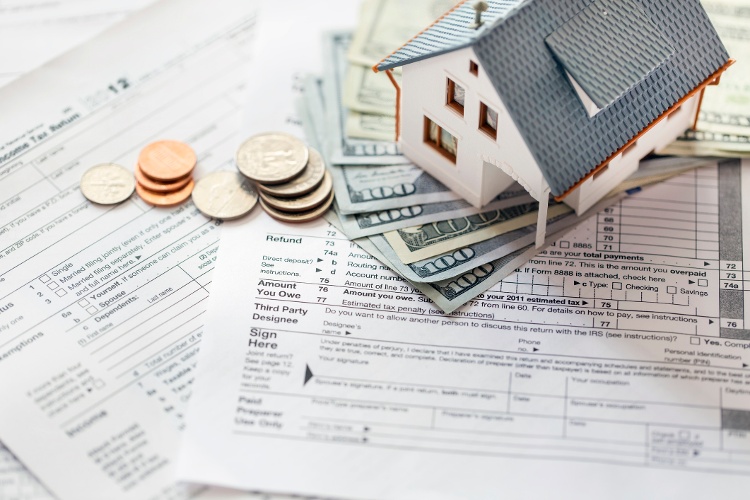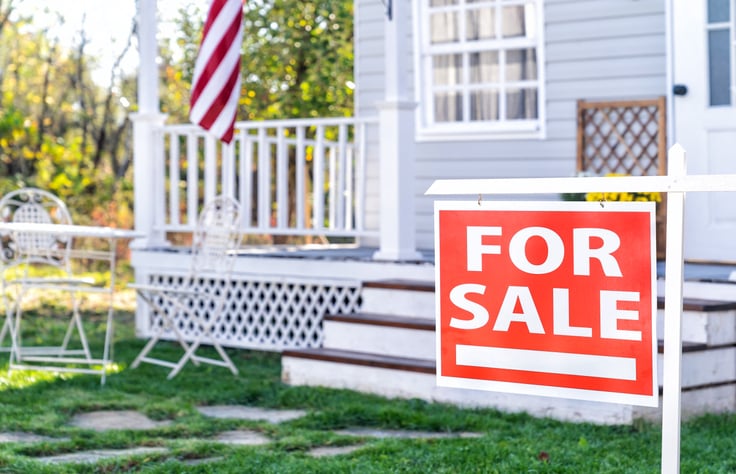If you’re like a lot of people today, you may have stumbled into being a landlord by converting your old primary residence into a rental property.
So what happens tax-wise when the time comes to sell?
In many cases, the same tax benefits of a principal residence still apply even if the property was being used as a rental at the time of sale. Keep reading to learn more.
Example of Selling Rental Property That Was a Primary Residence
One of the most frequently asked questions that the IRS receives from real estate investors is about selling a rental property that used to be a primary residence. We’ve summarized the answer below:

Question from Taxpayer
A property was a primary residence for 2 years, then used as a rental property for 3 years before it was sold. Can capital gains on the sale still be excluded?
Answer from IRS
Yes, the gain on sale can be excluded. By owning and using the property as a primary residence for 2 years out of the 5-year holding period, the IRS’s ownership and use tests for excluding the gain on sale have been met. This is true even if the property was used as a rental for 3 years prior to being sold, provided that the exclusion was not used on the sale of another residence during the 2-year period that ends on the date of the sale.
To learn more, you can read the complete IRS response here.

Taxes When You Sell a Rental Property
When you sell a rental property that was your personal residence, the IRS requires any depreciation expense taken to be “recaptured” and taxed as normal income up to a maximum recapture tax rate of 25%.
So, if you claimed an annual depreciation deduction of $18,181 on a $500,000 rental property for 3 years before selling, you need to recapture $54,543 ($18,181 x 3 years) and report that amount as regular income.
Any remaining gain on the sale of a rental property is taxed at the current capital gains tax rate of 0%, 15%, or 20% depending on your total personal income. However, you may be able to still exclude part or all of the gain from tax by using the home sale exclusion for a primary residence even if the home is currently used as a rental property.

Can You Claim the Capital Gains Exclusion if Your Residence Was Used as a Rental?
When you sell your primary residence, the IRS allows a home sale exclusion of up to $250,000 of the gain from the sale for taxpayers who file as single individuals and up to $500,000 for taxpayers who file a joint return.
For example, if you purchased a house for $383,000 to use as your primary residence and sold it 5 years later for $622,000, your capital gains would be $239,000. This entire amount would be excluded from capital gains tax because it was your primary residence.
But what happens when you turn your primary residence into a rental property?
The good news is that you may still be able to qualify for the full exclusion if the home was your primary residence before turning it into a rental property and you meet the ownership and use tests:
- Ownership test: Owned the home for at least 2 years during the 5-year period that ends on the date of sale.
- Use test: Lived in the home as your primary residence for at least 2 years and then rent it out for 2 years before selling it.
However, the tax-free exclusion works differently if you turn a rental property into your primary residence before selling.
The period of time that you live in the home as your primary residence is known as qualified use, and the time the home was used as a rental is the non-qualifying use period. In a situation like this, you generally have to prorate your tax-free capital gains exclusion based on the number of years you lived in the property after converting a rental into your primary residence.
To learn more about qualifying for the exclusion visit IRS Tax Topic No. 701 Sale of Your Home.









